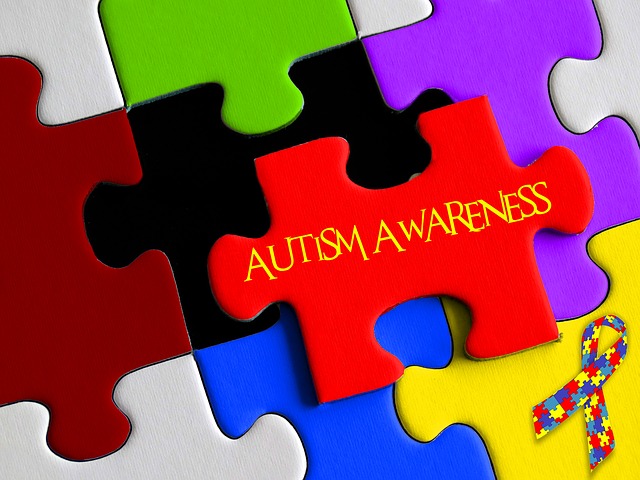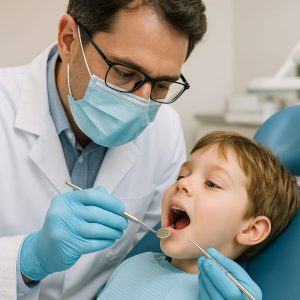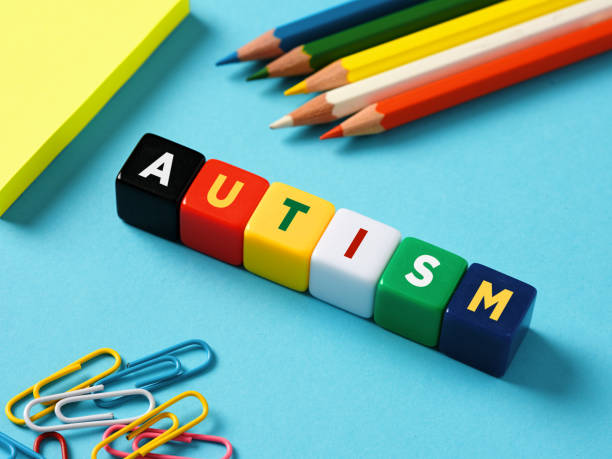 Individuals with autism who are pursuing fitness goals may benefit from a tailored approach to supplements, focusing on safe and effective practices. As supplement use becomes increasingly popular, understanding the specific needs of those on the autism spectrum is vital to promote wellness, minimize risks, and support healthy routines. This guide covers how to navigate supplement choices, prioritize safety, and foster a positive fitness experience for fitness enthusiasts with autism.
Individuals with autism who are pursuing fitness goals may benefit from a tailored approach to supplements, focusing on safe and effective practices. As supplement use becomes increasingly popular, understanding the specific needs of those on the autism spectrum is vital to promote wellness, minimize risks, and support healthy routines. This guide covers how to navigate supplement choices, prioritize safety, and foster a positive fitness experience for fitness enthusiasts with autism.
Understanding the Basics of Supplement Use
Using supplements can complement fitness routines, but it’s essential to prioritize safety. For those with autism, choosing supplements can be especially sensitive due to factors like sensory differences and potential medication interactions. One aspect to consider is the safe use of bodybuilding products—learn more about responsible practices here. Prioritizing research-backed, quality products helps avoid unnecessary risks and ensures a better experience with each supplement.
How Autism Affects Supplement Choices
Autistic individuals may have unique responses to certain substances, due to variations in metabolism, heightened sensory sensitivities, or coexisting conditions. These differences can influence how the body absorbs and reacts to supplements, making it critical to select products that suit individual needs. Here are a few ways autism can impact supplement use:
- Sensory Preferences: Some supplements, such as powders or capsules, may not be tolerated due to texture, smell, or taste.
- Medication Interactions: Supplements may interact with prescribed medications, necessitating careful planning and consultation with a healthcare provider.
- Gastrointestinal Sensitivities: Autistic individuals often have gut sensitivities, which may be aggravated by certain supplements, like protein powders or amino acids.
Essential Tips for Safe Supplement Use
1. Prioritize Consultation with Professionals
Before beginning any supplement regimen, consult with a healthcare provider who understands both autism and fitness goals. They can help assess individual needs, ensure no adverse reactions with current medications, and recommend safe options. Involving a dietitian or a fitness coach with experience in autism can further support a tailored approach.
2. Start with Lower Dosages
Starting with a low dose and observing for any reactions is a recommended practice. Autistic individuals may have heightened reactions to substances, so beginning slowly allows the body to adjust and provides an opportunity to gauge tolerance. Gradually increasing the dose if needed can reduce potential side effects.
3. Choose High-Quality, Third-Party Tested Products
To avoid unnecessary additives or contaminants, opt for third-party tested supplements. These are evaluated for purity and ingredient accuracy, ensuring safer consumption. Some reputable certifications to look for include NSF Certified for Sport and Informed-Choice, which guarantee that the products are free from harmful additives or allergens.
Types of Supplements to Consider
Different supplements may benefit fitness enthusiasts on the autism spectrum by enhancing energy levels, supporting muscle growth, or aiding recovery. Here are some commonly used supplements and how they can fit into a fitness routine:
Protein Supplements
Protein is vital for muscle repair and growth, especially after workouts. For those who struggle with texture or flavor, consider flavored or unflavored protein powder options in various forms, such as shakes or smoothies. Protein from natural sources, like Greek yogurt or eggs, can also be a good alternative if powder supplements are not well tolerated.
Omega-3 Fatty Acids
Omega-3 fatty acids, often derived from fish oil, are known to support brain health, helping to improve focus and mood. For individuals with autism, these supplements may be especially helpful, as they assist in cognitive function and offer anti-inflammatory benefits. Choosing high-quality, purified fish oil or plant-based options is ideal for those with dietary sensitivities or preferences.
Multivitamins
Many fitness enthusiasts find that a well-rounded multivitamin can help cover potential nutrient gaps. For individuals with autism, multivitamins that avoid artificial colors, flavors, and fillers are preferable to reduce the risk of adverse reactions.
Creatine
Creatine is a popular supplement for muscle strength and endurance, with research supporting its effectiveness in safe dosages. While generally safe, those with autism should start with minimal doses, as it can lead to digestive discomfort or other mild reactions if consumed in larger amounts.
Supplements to Avoid or Use with Caution
Certain supplements may pose increased risks for individuals on the autism spectrum, particularly those prone to sensory sensitivities or digestive issues. Here are a few to approach carefully:
- Caffeine-Based Pre-Workouts: High caffeine levels can cause overstimulation, anxiety, or sleep disturbances. Consider caffeine-free or low-stimulant pre-workouts instead.
- Artificial Additives: Products with artificial colors, sweeteners, or fillers can cause adverse reactions, especially for those with sensory sensitivities.
- High-Stimulus Fat Burners: Fat burners with stimulant-based ingredients are best avoided, as they can cause agitation, restlessness, and overstimulation.
Integrating Supplements into a Fitness Routine
1. Set Realistic Goals
Setting clear, achievable goals can help track progress and make it easier to gauge the effectiveness of a supplement. Goals may vary from muscle gain to improved energy levels, so defining them early provides a way to assess if a supplement regimen is helpful.
2. Track Reactions and Progress
Using a fitness journal or app to monitor reactions to supplements is helpful for understanding individual tolerance and any changes in well-being. Record details like dosage, timing, and any symptoms or benefits noticed to share with healthcare providers during check-ups.
3. Build a Routine Gradually
Adding one supplement at a time and monitoring its effects is a safe approach, allowing the body to adapt gradually. Once tolerance is established, other supplements may be incorporated if desired.
Building a Holistic Wellness Approach
Supplement use is only one component of a healthy fitness journey. For autistic individuals, a balanced approach that includes a nutritious diet, regular physical activity, and mental health support can create a foundation for sustained wellness. Additionally, seeking community support—whether through autism-focused fitness groups or online forums—can provide motivation and shared experiences, fostering a positive fitness journey.
RELATED READ: Unlocking the Potential of NMN Dietary Supplement in Managing Metabolic Challenges in Autism
Final Thoughts
For fitness enthusiasts with autism, navigating supplement use requires attention to safety, quality, and personal needs. By making informed choices, consulting with professionals, and tracking responses, individuals on the autism spectrum can enhance their fitness journey and promote overall wellness. Safe supplement use paired with a balanced approach can provide the support needed to pursue fitness goals confidently.




 Medical screening exists for one reason: patient safety. When autistic patients seek laser lipolysis, careful screening is not a barrier or a judgment. It is a standard, ethical step that helps clinicians provide safe, appropriate care while respecting each person’s autonomy and goals.
Medical screening exists for one reason: patient safety. When autistic patients seek laser lipolysis, careful screening is not a barrier or a judgment. It is a standard, ethical step that helps clinicians provide safe, appropriate care while respecting each person’s autonomy and goals.
 This is made possible by collaboration among healthcare professionals, as well as caregivers and educators. This is to ensure that care plans are consistent with a person’s needs. Care support systems are improved by a seamless approach among healthcare providers, as well as caregivers and educators.
This is made possible by collaboration among healthcare professionals, as well as caregivers and educators. This is to ensure that care plans are consistent with a person’s needs. Care support systems are improved by a seamless approach among healthcare providers, as well as caregivers and educators.
 Taking a child to the dentist can be stressful for any parent. For families of children with autism, the first dental visit can feel especially overwhelming. New environments, bright lights, unfamiliar sounds, and close personal contact can all trigger anxiety. But with preparation, the right dentist, and a supportive approach, a child’s first dental visit can be a positive and manageable experience—especially when working with an experienced dentist Chicago families trust.
Taking a child to the dentist can be stressful for any parent. For families of children with autism, the first dental visit can feel especially overwhelming. New environments, bright lights, unfamiliar sounds, and close personal contact can all trigger anxiety. But with preparation, the right dentist, and a supportive approach, a child’s first dental visit can be a positive and manageable experience—especially when working with an experienced dentist Chicago families trust. Emotional breakdowns for autistic people may be triggered by too much background noise. To prevent this, a quiet spot inside the house that is surrounded by noise-cancelling furniture is a perfect option. You may also try using a white noise machine or playing relaxing music.
Emotional breakdowns for autistic people may be triggered by too much background noise. To prevent this, a quiet spot inside the house that is surrounded by noise-cancelling furniture is a perfect option. You may also try using a white noise machine or playing relaxing music. An individual’s quality of life can be greatly affected by these disorders; hence, precise diagnosis and efficient treatment are rather important.
An individual’s quality of life can be greatly affected by these disorders; hence, precise diagnosis and efficient treatment are rather important. People with autism may have increased sensitivity to textures, tastes, scents, even food’s visual look. Picky eating, food aversions, and trouble with mealtimes can follow from this.
People with autism may have increased sensitivity to textures, tastes, scents, even food’s visual look. Picky eating, food aversions, and trouble with mealtimes can follow from this. Individuals with autism who are pursuing fitness goals may benefit from a tailored approach to supplements, focusing on safe and effective practices. As supplement use becomes increasingly popular, understanding the specific needs of those on the autism spectrum is vital to promote wellness, minimize risks, and support healthy routines. This guide covers how to navigate supplement choices, prioritize safety, and foster a positive fitness experience for fitness enthusiasts with autism.
Individuals with autism who are pursuing fitness goals may benefit from a tailored approach to supplements, focusing on safe and effective practices. As supplement use becomes increasingly popular, understanding the specific needs of those on the autism spectrum is vital to promote wellness, minimize risks, and support healthy routines. This guide covers how to navigate supplement choices, prioritize safety, and foster a positive fitness experience for fitness enthusiasts with autism. For many with autism, therapies including occupational, behavioral, and speech therapy are absolutely vital. These can be costly—even with insurance.
For many with autism, therapies including occupational, behavioral, and speech therapy are absolutely vital. These can be costly—even with insurance. The symptoms of autism can be worsened by nutritional deficits. Low iron levels may cause drowsiness and impair learning, while a deficiency of vitamin D can worsen problems with social interaction.
The symptoms of autism can be worsened by nutritional deficits. Low iron levels may cause drowsiness and impair learning, while a deficiency of vitamin D can worsen problems with social interaction.














 Autistic individuals often face unique challenges when accessing dental care. Sensory sensitivities, communication barriers, and anxiety can make routine visits overwhelming. Yet, dental practices are evolving to meet these needs through thoughtful expansion and acquisition strategies. By prioritizing inclusivity, dental professionals can create environments where neurodiverse patients feel safe and supported. This approach not only improves care but also aligns with the growing demand for accessible healthcare.
Autistic individuals often face unique challenges when accessing dental care. Sensory sensitivities, communication barriers, and anxiety can make routine visits overwhelming. Yet, dental practices are evolving to meet these needs through thoughtful expansion and acquisition strategies. By prioritizing inclusivity, dental professionals can create environments where neurodiverse patients feel safe and supported. This approach not only improves care but also aligns with the growing demand for accessible healthcare. Research into autism spectrum disorder (ASD) and anabolic steroids is limited but growing. Scientists are curious about how these substances might affect individuals with autism. Some studies suggest potential therapeutic benefits, while others raise concerns about risks. This topic is complex, blending neurology, endocrinology, and behavioral science. Let’s dive into what we know so far.
Research into autism spectrum disorder (ASD) and anabolic steroids is limited but growing. Scientists are curious about how these substances might affect individuals with autism. Some studies suggest potential therapeutic benefits, while others raise concerns about risks. This topic is complex, blending neurology, endocrinology, and behavioral science. Let’s dive into what we know so far. Many autistic individuals face a higher risk of obesity. Factors such as sensory sensitivities, difficulty with physical activity, and side effects from medication all contribute to weight gain. Some autistic people also experience food selectivity, limiting their diet to specific textures or flavors. For those struggling with weight-related health issues, consulting a weight loss surgeon Perth can provide medically supervised solutions.
Many autistic individuals face a higher risk of obesity. Factors such as sensory sensitivities, difficulty with physical activity, and side effects from medication all contribute to weight gain. Some autistic people also experience food selectivity, limiting their diet to specific textures or flavors. For those struggling with weight-related health issues, consulting a weight loss surgeon Perth can provide medically supervised solutions.

 Autistic women often face unique challenges when navigating intimate relationships and communicating their sexual needs. Research shows that autistic individuals are just as interested in forming meaningful relationships as neurotypical individuals but may struggle with social cues, sensory sensitivities, and communication barriers. These challenges don’t diminish the need for a fulfilling, intimate life; instead, they highlight the importance of learning strategies to effectively explore and express these needs.
Autistic women often face unique challenges when navigating intimate relationships and communicating their sexual needs. Research shows that autistic individuals are just as interested in forming meaningful relationships as neurotypical individuals but may struggle with social cues, sensory sensitivities, and communication barriers. These challenges don’t diminish the need for a fulfilling, intimate life; instead, they highlight the importance of learning strategies to effectively explore and express these needs.

